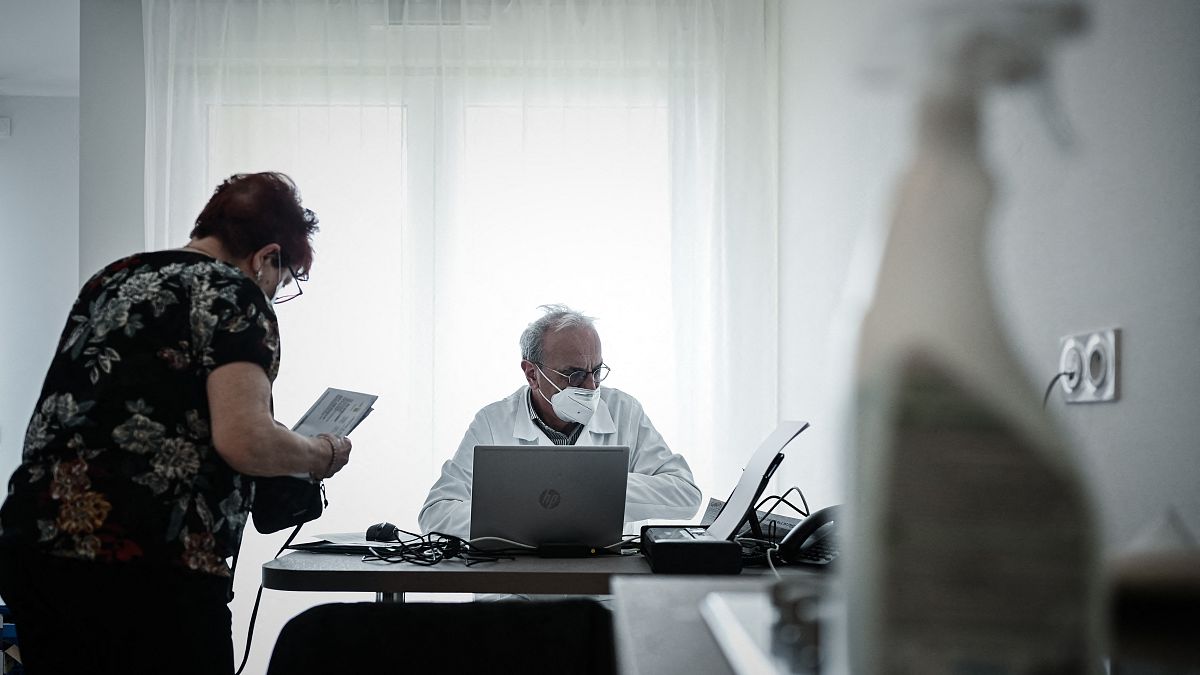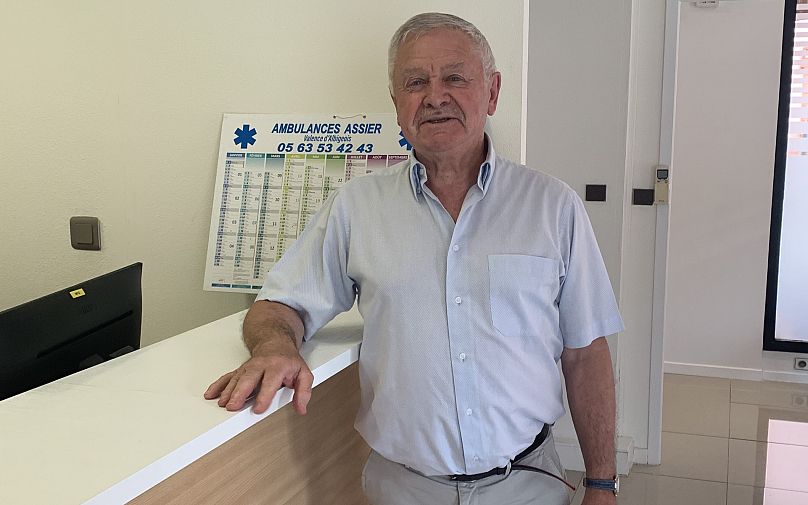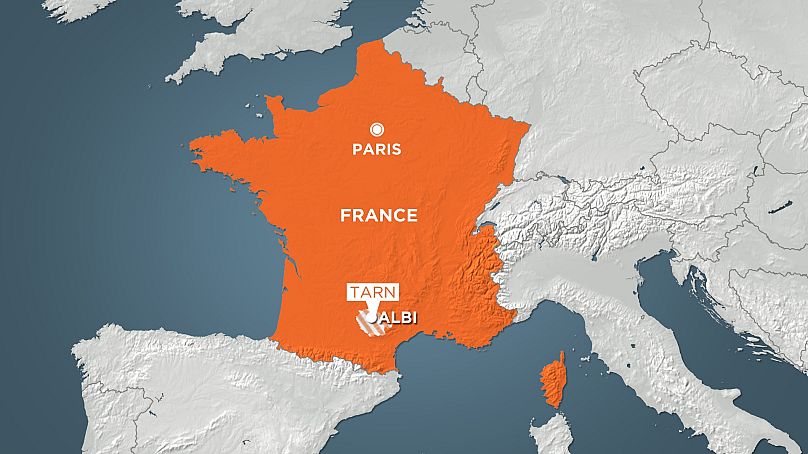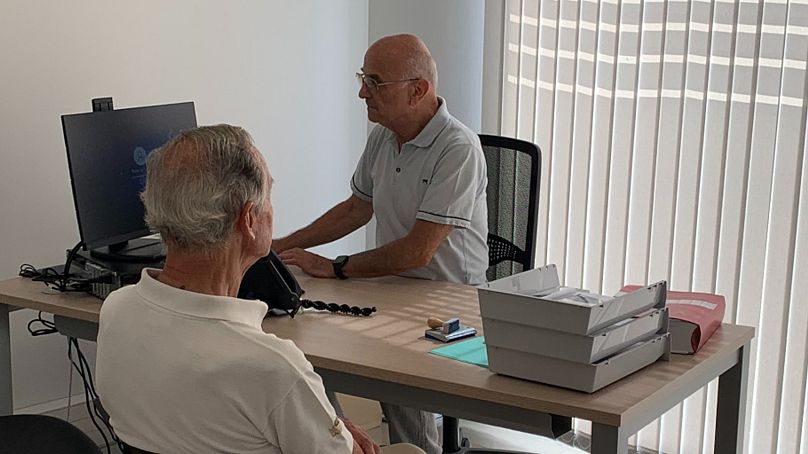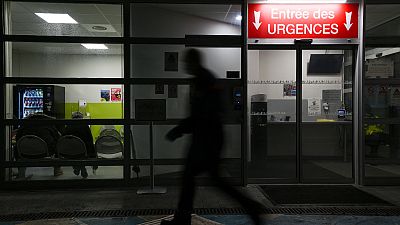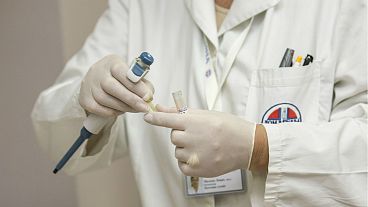A unique medical practice run by retired doctors has opened its doors in rural southern France amid an ongoing healthcare crisis.
Yves Carcaillet was just a year into his retirement when he was approached by his city to go back to work.
"I'd been a doctor for 45 years and found leaving my patients very painful, especially when I knew they would struggle to find another doctor to take them on," the 74-year-old doctor told Euronews Next.
He’s now one of eight doctors aged 69 to 78 who are running a clinic in the city of Albi to address a medical professional shortage in the area. The practice is the first of its kind and was launched in late June.
"We really enjoy working together, it is a very relaxed atmosphere," said Carcaillet.
At the new clinic, the retired doctors work four-hour shifts on rotation which allows them to maintain a sense of freedom.
"Our timetables are carefully constructed, so that if someone needs to look after their grandchildren they are free to do so," said Carcaillet.
The practice has been taking a combined 50 appointments per day, but instead of serving as the patients’ GPs, they provide assistance to those who need an appointment quickly.
"We had a patient who was given a six-week wait for an appointment by his registered general practitioner. We were able to see him the very same day. We are here because we want to give back to the community," explained Carcaillet.
"Opening the practice brought a sense of serenity to the town. People were anxious and stressed about getting a doctor’s appointment," he added.
Although the city of Albi has not been classified as an area with extreme doctor shortages, many areas in the wider Tarn département (county) are acutely affected.
It’s a problem that is widespread across France, as 11 per cent of the population is without a GP, according to a report by the French Senate.
A new lease of life for retired doctors
The new practice has proved a hit with patients but also with retired doctors, as more and more are sending in applications.
To be hired, retired doctors must get past a stringent recruitment process.
"We must ensure that doctors are in a fit state to practise, that their medical knowledge is up to date. We have also had to deliver some IT training," explained Dr Etienne Moulin, the region's health counsellor.
"The practice looks as though it will run at a loss but the city will most likely cover this shortfall," he said.
Three medical assistants are employed by the local hospital to work alongside the doctors to make sure the practice runs smoothly.
The practice’s doctors are paid through the non-profit organisation they founded called the Association of Retired Doctors of Albi. This arrangement was granted special approval by the French government and regional health authority.
Widespread doctor shortages in France
Doctor shortages in France will likely peak in 2024, with the situation only set to stabilise from 2030, according to a 2017 government study.
Across France, the average age of doctors was 51 in 2018, with 30 per cent of doctors over the age of 60.
Last October, French president Emmanuel Macron urged doctors nearing retirement age to continue working, offering pension benefit incentives during an interview with TV channel France 2.
Dr Etienne Moulin said that there are several factors that have influenced the crisis.
"The baby boomer generation which settled down across France in the 1970s is now retiring - and they are not being replaced," Moulin said.
He attributes this in part to a generational shift, with younger doctors demanding better conditions.
"They do not want to work 70+ hours per week 6 days a week," he said.
Back at the clinic, one thing remains sure for Carcaillet.
"We're not trying to compete with our young colleagues, we'll close up the day that they want to open a practice here," he said.
"For now though we will continue lending a hand to the community and take great pleasure in doing so".
